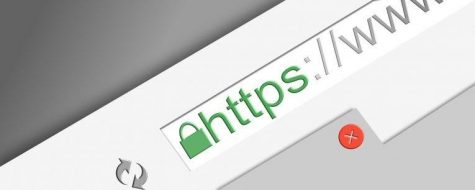The FBI warns that criminals are pumping out thousands of brand-new COVID-19 scams every day. These criminals aren’t missing an opportunity to cash-in on the pandemic.
COVID-19 themed scams are typically done over the telephone or through an online hacking method known as phishing.
Examples of COVID-19 themed telephone scams include:
- Requesting payment to get on a vaccine waiting list
- Offers to purchase COVID-19 related drugs, vitamins, supplements, supplies, or vaccine at discounted rates
- An unknown caller claiming to be a government or health official to steal financial or private information
- Offers to accelerate delivery of stimulus checks in exchange for payment
Examples of COVID-19 themed phishing scams include:
- Unsolicited emails claiming to have and sell a COVID-19 cure or vaccine
- Unsolicited emails containing suspicious links to websites claiming to sell vitamins or supplements as COVID-19 cures
- Unsolicited emails claiming to be a government or medical official to steal financial and private information
- Fake websites posted on social media or sent through email claiming to have or sell a COVID-19 cure or vaccine
- Fake websites posted on social media or sent through spreading misinformation and lies about COVID-19
- Fake websites posted on social media or sent through email claiming to sell “home remedies” or “natural medicine” as a COVID-19 cure
As of Feb. 21, 2021, the Federal Trade Commission received more than 362,000 complaints involving COVID-19 scams, according to an American Association of Retired Person’s (AARP) report. In 2020, The FBI received more than 4,000 complaints a day regarding COVID-19 scams, according to a report by PR Newswire. During the beginning of the pandemic, Microsoft reported an increase of 30,000 COVID-19 phishing scams a day.
Falling victim to these scams can be a costly mistake.
“Victims have reported losing nearly $349 million in 2021, with a median loss of $319,” the AARP stated in a report.
Spinnaker checked with UPD Chief Frank Mackesy and UNF Assistant Director of IT Security, Gunner Lake, to find out what Ospreys can do to protect themselves against these telephone and phishing scams.
“The best way for students and faculty to protect against telephone scams is just to ignore or hang-up the phone and report the scam immediately to UPD,” Chief Mackesy said. “Never give out personal information over the phone no matter how official the person on the phone sounds.”
Here are some additional tips to consider when you receive a suspicious phone call:
- Always check the caller ID
- Ignore all phone numbers that say “Blocked,” “Unlisted,” and “Unknown”
- A government or medical official will never ask for financial or personal private information over the telephone or through email
- Add suspicious phone numbers to your phone system’s block list
- Submit suspicious phone numbers to the National Do Not Call Registry
According to Lake, the best way to defend against phishing scams is to not click on random links when checking your email or browsing social media websites like Twitter, Instagram, or Facebook. One way to tell if a website is safe to browse, or visit, is to verify if a symbol of a “lock” or the words “HTTPS” is located next to the website address, as depicted below. 
Example of an unsafe website:

For more information on how Ospreys can protect themselves against COVID-19 related scams, please visit this U.S. Department of Health and Human Services website.
___
For more information or news tips, or if you see an error in this story or have any compliments or concerns, contact editor@unfspinnaker.com.















